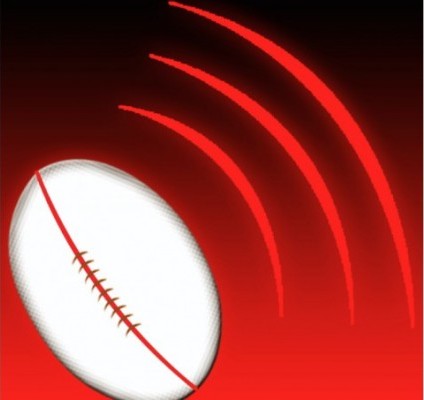Work to do for Latham, USA Rugby Board
Work to do for Latham, USA Rugby Board
Some things you might not know about Bob Latham:
He’s a top media lawyer from Dallas.
He was a longtime wing and flyhalf for the Dallas Harlequins.
He writes regularly about sports, and has written a book, Winners & Losers.
He was for years not only the rugby representative to the US Olympic Committee, but the representative for all of the emerging sports.
He was influential in getting rugby to be accepted as an Olympic Sport.
And … he’s the new USA Rugby Chairman after Kevin Roberts reached his term limit.
That last bit of news might have eluded you, and perhaps the importance of the position might elude you, too.
But Latham’s election is significant for several reasons, not least of which is, he’s not the previous guy, Roberts.
Where Roberts was an advertising guy with a long history as the head of Saatchi & Saatchi, Latham is a lawyer. Where Roberts was born in England and is heavily connected with New Zealand rugby, Latham is an American all the way and has been heavily connected with USA Rugby for many years.
Where Roberts is about branding (look up “Love Marks” and see if he puts you in mind of Jason Bateman’s character in the movie Hancock). Latham is about relationships.
Roberts didn’t seem to like to talk to people, and was rarely seen at USA Rugby events. Latham will happily chat with you about rugby or pretty much any other sport, and is often seen at USA internationals and other USA Rugby events.
It’s these differences that could harbinger the future for USA Rugby. Latham is known first and foremost as someone who has built relationships - relationships with the IRB, and with the US and International Olympic Committees. It’s not unreasonable to think he might have a role in the USOC’s leadership over and above his previous board membership … at least after he’s finished with this new role with USA Rugby.
USA Rugby’s Board is made up of well-connected and successful people who volunteer to help USA Rugby plan and implement plans. There are former and current high-level executives, most of whom have played rugby in America. There is also a representative from USA’s Congress (currently Gary Heavner), and two former international athletes (currently Brian McClenahan and Pam Kosanke). The Board hires the CEO, and approves the CEO’s major hires. In addition, the Board puts members on committees with members of the Congress (made up of representatives from the rugby community around the country), and other interested parties.
So the Board has a hand in many aspects of the game, such as how competitions are organized, what eligibility rules are used, and how dues are charged.
Thus, while for many, the job of Chairman of the Board might seem disassociated with your everyday rugby life, but it in fact can have significant influence over the game.
“Being Chairman was not on my mind,” Latham told Goff Rugby Report, this despite the fact he seemed to be on track to get the position. “The Board has functioned well as a cohesive unit. I figured whatever happened would be organic, and would be the right choice.”
Whoever it was going to be would have a lot of work ahead of him or her.
“The next two years will be action-packed,” warned Latham, pointing to the Women’s World Cup, Youth Olympics, Pan-Am Games, Olympic Qualification, and Men’s 15s World Cup, all in the space of about 16 months. “To handle that we know we need to boost the growth of our resources. It’s good we have all these things happening, but it magnifies our challenges.”
USA Rugby’s revenue has been steadily increasing, from $7.5 million in 2011 to $10.2 million in 2012 to about $13 million now. Latham acknowledged that $13 million is a lot of money for USA Rugby, but it needs to be more.
Revenues from sponsorships, membership, events, and grants are all up. Events will likely be even larger after the USA v New Zealand game November 1, which looks like it will top 50,000 in attendance, dwarfing any American rugby event. That game, considered a bit of a risk on the USA’s part, could well turn out to be a financial windfall, as the ticket take could well top $2 million.
“The events have been huge for us lately,” said Latham. “The games in Houston have been terrific, of course, but even the smaller crowds - Sacramento sold out. I think we’ve upped our game there.”
But the Board needs to do more, said Latham, to keep the revenue flowing in. They can save some for the future, but not much.
“The Audit Committee led by Rob King has been doing great job and they are working on making sure we handle the financial cycles and stay financially healthy,” said Latham. “But we’re a non-profit, so while we can save for a rainy day, we also need to be mindful that we’re a non-profit.”
Finances are a big part of what the Board has to worry about, but playing nice with others is part of the job, too - something some high-profile people in the American game have not always succeeded at.
Latham knows how to work a room, and he acknowledges that such a skill is one reason why he’s the Chairman now.
“I know a lot of people,” he explained. “I’ve been involved in the international game and with the IRB. I think that a lot of the work we can do is helping develop trust between USA Rugby and the IRB. The business of USA Rugby depends a lot on relationships, and I’ve been building relationships.”
What does that do for American rugby? Well, if we want to host the 2018 Rugby World Cup 7s, and get past the 11 other countries who have expressed interest, we need to have the right reputation.
“We want the 7s World Cup,” said Latham. “We’ve been pretty overt in our desire to host it. We’re ready for it. But we need to show we can pull it off. We need to show we can be trusted to do it.”
That means other events have to be done well, and Latham has to keep pushing the message.
All of this is just a small look into what Latham and the Board are working on. They have some work to do to organize and find a happy compromise in domestic competitions; they have to look at how they service the youth game; they have to look into improving the lot of the international player, who is asked to devote more and more time to training and playing.
And maybe now it’s good timing to have an American rugby person in the chairman’s chair.
Latham understands there are other ideas out there, other leagues, other competitions, other viewpoints. He makes his thoughts plain:
“I don’t question the bona fides of anyone trying to grow the game,” he said. “And while there have always been challenges around when we play and how we organize the competitions, we have competitions that are attractive, and we don’t like seeing anyone not under the tent.”











